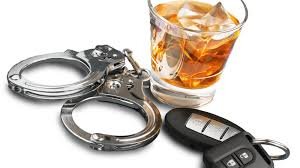Must-Know Alcohol and Drug Laws in Germany: Stay Informed and Compliant
Alcohol and Drug Laws in Germany: What You Need to Know
Germany boasts a rich cultural association with beer, and alcohol consumption is generally viewed with more tolerance than in some other countries. However, don’t be fooled by the beer gardens – Germany enforces strict regulations regarding alcohol consumption and drug use to ensure public safety. This guide provides a comprehensive overview of these laws to help you navigate your stay responsibly.

1. Understanding Alcohol Laws:
Germany’s approach to alcohol consumption strikes a balance between cultural acceptance and responsible regulations.
-
Minimum Legal Age: The minimum legal drinking age varies depending on the type of beverage:
- 16 years old: Beer and wine are legal for purchase and consumption at this age.
- 18 years old: Spirits and all other distilled beverages require you to be 18 or older.
-
Public Consumption: Unlike some countries, public consumption of alcohol is generally permitted in Germany. Public parks, squares, and even certain streets may be bustling with people enjoying a beverage. However, some localities may implement temporary bans on alcohol consumption in specific areas during special events like festivals.
-
Driving Under the Influence (DUI): Germany takes DUI very seriously. The legal blood alcohol concentration (BAC) limit is 0.05% for most drivers. This is significantly lower than the standard in many other countries.
- Zero Tolerance: Novice drivers (those with less than two years of experience) and drivers under 21 face a zero-tolerance policy. Any trace of alcohol detected in their system can result in penalties.
Exceeding the BAC limits can lead to hefty fines, license suspension, or even jail time for repeat offenders. For detailed information on German traffic laws and penalties, you can visit the website of the Federal Office for Motor Transport (Kraftfahrt-Bundesamt) (https://www.kba.de/EN/Home/home_node.html).
2. Navigating Drug Laws:
Germany enforces strict regulations concerning controlled substances. Possession, sale, and consumption of illegal drugs – such as cocaine, heroin, and ecstasy – are all strictly prohibited. Penalties for trafficking or production of these substances can be severe, including lengthy prison sentences.
-
Minimal Quantities: The legal stance on minimal quantities for personal use varies by state (Bundesländer) within Germany. Some states might adopt a more lenient approach, issuing warnings or fines for small amounts (often up to 6 grams) instead of pressing criminal charges. However, this is not a universal rule, and it’s crucial to remember that even minimal possession of illegal drugs can lead to trouble.
-
Cannabis: As of October 2024, cannabis remains illegal for recreational use in Germany. However, the government is actively considering legalization. Proposals have been put forward to legalize limited quantities of cannabis for personal consumption, accompanied by strict regulations on sales and distribution.
3. Medical Cannabis:
A significant change occurred in 2017 when Germany legalized medical cannabis. Patients with a valid prescription can acquire cannabis from pharmacies to treat specific medical conditions, including chronic pain and multiple sclerosis.
4. Driving Under the Influence of Drugs:
Operating a vehicle under the influence of any narcotic substance, including cannabis, is a serious offense. The police conduct random roadside drug tests. Penalties for driving under the influence of drugs can mirror those for DUI with alcohol, including:
- Financial penalties
- License suspension
- Potential incarceration for severe offenses

5. Recent Developments and Future Outlook (October 2024):
The ongoing debate on cannabis legalization is a hot topic in Germany. Public opinion is divided, with some advocating for complete legalization and others favoring a more cautious approach. The government is currently exploring options for controlled legalization of cannabis for recreational purposes, with a focus on responsible regulations concerning sale and distribution. However, as of October 2024, recreational cannabis use remains illegal.
Summary:
Germany offers a unique perspective on alcohol and drugs. While public alcohol consumption is generally allowed, responsible drinking practices and strict DUI laws are in place. Drug laws, however, are significantly stricter. Recreational cannabis use remains illegal, although medical cannabis is legal with a prescription. As Germany navigates the legalization debate surrounding cannabis, staying informed about the current regulations is crucial.
Additional Resources:
- Chances – The German Drug Addiction Helpline (https://chancenkarte.info) (German language) offers information and support for individuals struggling with drug addiction.
- The Federal Ministry of Health (https://www.bundesgesundheitsministerium.de/en/) (German language) provides resources on German drug policy and initiatives.



